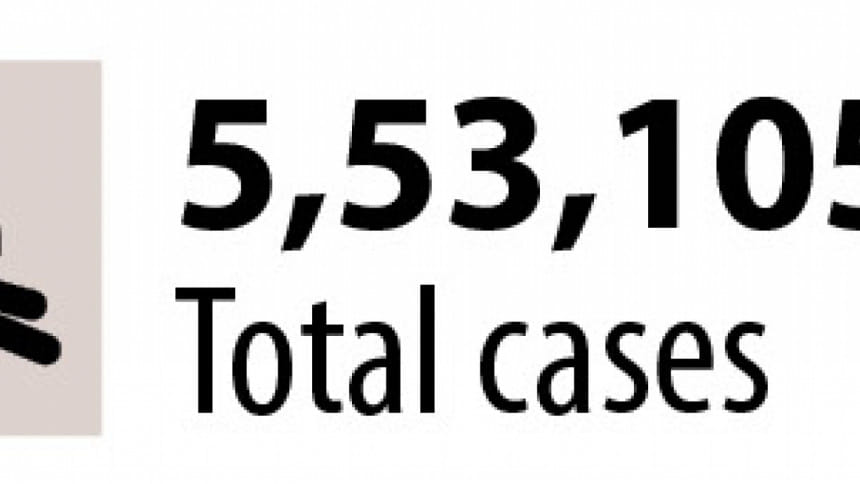Coronavirus Contagion: Fears of a fresh surge growing

With the number of new cases rising for a week, health officials and experts fear that the Covid-19 outbreak will spread again if people do not maintain social distancing and wear masks.
There were at least 1,018 reported new cases yesterday, the highest in two months.
The daily new infection rate went past 5 percent this month, up from between 2.26 and 3.30 percent throughout February, according to the Directorate General of Health Services (DGHS).
Many experts are worried at the sudden rise in new cases and deaths amid the mass vaccination campaign and ahead of the reopening of the educational institutions at the end of this month.

Health experts say people's reluctance to follow the rules has led to the rise in daily numbers.
Many people are attending social gatherings, flocking to popular tourist destinations, and going about daily activities as if the pandemic is over, they added.
"People seem to care little about social distancing and are not wearing masks. That's why the transmission rate is now high. Hospital admission is also rising. It is frightening and highly concerning," Health Minister Zahid Maleque told The Daily Star yesterday.
"We are trying to overcome the situation, but people seem to be trying to go backwards. We don't want to see what happened in the US or Europe. We have already sent directives to the deputy commissioners across the country to limit social and political gatherings."
The health minister also said that newspaper ads will be published soon, urging people to follow the health guidelines.
The daily positivity rate remained low for a while after the first Covid-19 cases were detected on March 8, 2020.
It started rising from mid-May last year when the positivity rate climbed to above 20 percent and stayed there until the third week of August. Then the rate started dropping. The country recorded the lowest daily infection rate of 2.26 percent on February 13.
But from March, it started rising and on March 9, the daily infection rate crossed the 5 percent mark, according to DGHS.
ABM Khurshid Alam, director general of the DGHS, said people's carelessness was really frustrating.
After taking their first shot of the vaccine, many people may have been thinking they are safe, he said. But that is not the case, he added.
"If people are not aware of the danger, what can we do?" he asked.
The government started its mass inoculation on February 7 and have so far administered over 40 lakh doses of the Oxford vaccine.
Asked whether the more lethal UK variant of the coronavirus, detected in the country in January, has anything to do with the recent rise, the DG said, "It is difficult to say whether the UK variant is the reason."
People arriving from abroad should strictly follow the quarantine rules. Otherwise, the situation will go out of hand, he added.
Be-Nazir Ahmed, former director (disease control) at the DGHS, said the government must ensure strict quarantine and isolation of the people coming from abroad, especially the UK.

"If needed, air travel can be suspended from certain countries," he said.
There is no scientific proof of whether the virus spreads faster in winter or summer in a country, he said.
"There was an apprehension that the Covid-19 virus would spread more severely in the winter, but fortunately, it had not. With the summer approaching, we are seeing that the germ is spreading. But it has more to do with how strictly we are enforcing the health guidelines."
Mushtaq Hossain, an adviser to the Institute of Epidemiology, Disease Control and Research (IEDCR), stressed on the need for finding the source and cause of infections.
"We have to analyse whether the infection positivity rate increases in a specific area or across the country. We have to find out the reason before things go out of control. If we are complacent, there will be a disaster," he said.


 For all latest news, follow The Daily Star's Google News channel.
For all latest news, follow The Daily Star's Google News channel. 



Comments